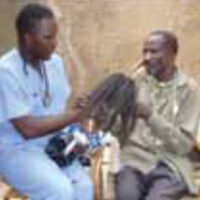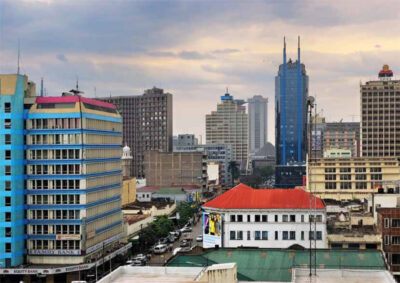Main content
This thesis is a brave attempt to address a very important problem in African Health: the separation between traditional perceptions of health of ordinary people, their healers and their communities and the modern, biology-based health system introduced by the western world. An introduction with an in-built separation, as, at that time, colonial powers and missionaries were convinced that they should bring ‘progress’ to that continent and regarded African traditions in health as hampering progress and/or being ‘unChristian’.
From an African perspective
Until this day health services suffer from this legacy of near complete separation. Often there is no contact at all between traditional healers and medical staff in hospitals, and medical staff tend to condemn traditional practice. As a result patients, who often use both systems, tend not to report this in their contacts with doctors in the hospital for fear of being scorned. The author of this thesis, Musuto Chirangi, a former hospital administrator of the Nyerere Designated District Hospital in Mugumu, experienced the attitude of his -Tanzanian-medical staff as unproductive and not very helpful towards improving hospital care. It led him to embark on more research into this topic and finally to writing this thesis.
The thesis merits attention because of the wealth of knowledge it contains about traditional remedies and the presentation of present-day realities in health care in their historical context, as seen from an open African perspective. But, above all, it does so because of the compelling plea it makes for a more patient-oriented, holistic approach that includes an understanding of the importance for health of the African cultural background and environment. Clearly at present such an approach cannot be provided by ‘modern’ health care alone.
Scientific approach
The author has done research in his home Mara region, but most descriptions are valid for most parts of Africa. However, it is not an easily accessible thesis and questions remain, whether such a complex subject, with many emotional and political aspects, gains from the kind of scientific approach needed for a PhD thesis in the Netherlands. In this thesis, scores of health staff in both modern and the various traditional services were questioned, in order to define the factors either supporting or hampering collaboration. But the large number of concepts, variables, indicators and categories and the very extensive statistical methods used to process these, make this a rather difficult thesis to read. At the same time the outcomes raise the question whether scientific proof, as delivered here, really helps to convince policymakers and all the other stakeholders in African health care, of the need to include traditional healers in a more integrated approach to health and health services.
Time and again the author refers to a large number of official declarations and resolutions, to achieve reform in the Tanzanian or African health services from national as well as international organizations but then has to state that all these official recommendations were actually never really implemented.
Collaboration in preventive care
The recommendations in this thesis would have gained from a sharper distinction between curative and preventive services, when defining possibilities for more collaboration. The author does mention various experiments involving traditional healers in prevention activities against HIV infections but in the opinion of this reviewer more attention should be given to the possibilities of collaboration in preventive care, as this is the subject where behaviour of ordinary people plays such an important role. Here the moral authority of traditional healers (much greater than that of the modern ones) could be successfully mobilized for the well-being of people and communities. It is also this area where no fears exist on either (but mostly among the ‘modern’) side that patients will not receive the ‘correct’ treatment with all the associated risks of -even fatal-outcomes. Improving prevention is therefore the area where the two sides could get to know each other better and build up the trust that is now so obviously lacking.
In that context the author should clarify his views on what he introduced as: ‘Complementary and Alternative Medicine (CAM)’. CAM covers all the other wide-ranging remedies and their providers. These providers/practitioners are often very different from the truly traditional ones in their approaches and motives. As traditional knowledge is passed on from parents to children for generations, it gives these practitioners their moral authority among their communities that CAM practitioners often lack.
Ordinary people
This African view on many issues in African health of a modern open- minded African, avoids the pitfall of becoming a mainly political statement. The author sees the interests of ordinary people as his highest priority.
It is not easy to do justice to this thesis in this short space available, but hopefully it will strongly assist the promotion of its title: integrated holistic health care in Africa that takes into account the importance of cultural backgrounds and environments.
PhD thesis of Musuto Mutaragara Chirangi, 17 April 2013, Leiden.

Afya Jumuishi: Towards Interprofessional Collaboration between Traditional and Modern Medical Practitioners in the Mara Region of Tanzania
Author: Musuto Mutaragara Chirangi
More information on https://openaccess.leidenuniv.nl


















































